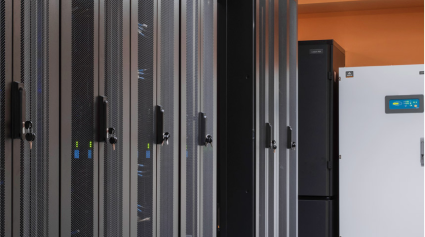There is nothing "set it and forget it" about data center management, especially when it comes to avoiding unplanned downtime. At an average estimated cost of nearly $9,000 per minute, a single outage is enough to significantly impact a business's bottom line. Data center managers need to take proactive measures that help them mitigate that risk.
One of the more effective methodologies is to architect a completely redundant data center power infrastructure. This means having two rack power distribution units (rPDU) for every rack or cabinet of equipment. If operators utilize rPDUs that are tested for 100-percent reliability by the manufacturer, and correctly manage those rPDUs, they can astronomically reduce the likelihood of a failure in their redundant power infrastructure.
Start with a reliable brand of rPDU ...
Seek out intelligent rPDUs with the right set of capabilities.
First, if you have legacy servers with only one cord, make sure that you invest in automatic transfer switches. These facilitate a connection to the primary and secondary sources of power through one cable. This is vital to ensuring that the failover is seamless. With that out of the way, let's talk rPDUs.
Data center managers should use rPDUs with remote switching, and ideally, they would come in more than one color to indicate, at a glance, which power feed each is connected to. Then there's the option of using intelligent rPDUs. These enable remote power-distribution monitoring, both at large scales, and granularly through individual pieces of equipment. Thresholds for current, voltage, etc. can also be set, so that the second a threshold is exceeded, pre-designated staff can receive an alert via SNMP, SMS or email.
While this option is becoming increasing popular, it's vital to specifically seek out an intelligent rPDU that leverages rapid tree spanning protocol (RSTP). Otherwise, each rPDU would need to be wired back to the network switch. With RSTP, technicians can daisy-chain their rack PDUs with two connections back to the switch, one at the end of the series, and one at the beginning. Normally, this would create switching loops, but RSTP was designed specifically to prevent broadcast storms.
... And properly configure the load
Working with a trusted rPDU manufacturer that has tested their products thoroughly and is willing to stand by them is crucial. Likewise, it is important to make sure that these tools offer the features you need, namely those referenced above.
However, it will all be for naught if you're not careful about how you use this technology. Specifically, it is important not to draw too much power into each rack PDU. Simply having two rPDUs in place doesn't guarantee redundancy if the power draw on each of those rPDUs exceeds 50 percent. If the primary power source goes offline, only one of the rack PDUs will be drawing all of the electricity, which means that it will be operating at full capacity.
At the same time, you don't necessarily benefit from under-utilizing your rPDUs. According to Brandon Perryman, under-loading circuits can result in inflated power subscription costs. In other words, load rack PDUs to their half-rated capacity if that load is split between two feeds, or to their full-rated capacity if it is passing through only one feed. Again, a reputable original equipment manufacturer will have thoroughly load-tested the products to ensure that it can handle the maximum load.
Reliability plus proper utilization equals power infrastructure redundancy. Remember that, and you might just be able to take some time off this summer without worrying about what's happening in the data center.



